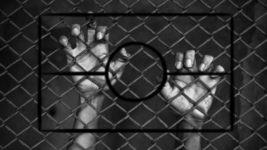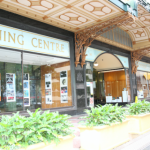Senate Calls on Australian Government to Intervene in Child Prisons

UTS Jumbunna Institute senior researcher Paddy Gibson outlined in Solidarity recently that the incarceration of First Nations people has increased under the Albanese government, with 12,556 Indigenous people in Australian prisons over the first quarter of 2022, compared with 15,070 Aboriginal adults locked in this nation’s gaols over that same period this year.
This saw the proportion of the overall adult prisoner population made up by Aboriginal and Torres Strait Islander peoples rising from 31 percent of the total to 35 percent. And this is all despite First Peoples only accounting for 3.8 percent of the general populace living on this continent.
“Indigenous youth now make up 59 percent of the youth prison system and are an appalling 29 times more likely than their non-Indigenous counterparts to be locked up,” Gibson added, as he pointed to the Australian child prison crisis that’s long seen northern jurisdictions passing tough-on-crime bills targeting youths, which is now an emerging pattern in the southern states.
The last two months have seen a second First Nations teen inmate take their own life in WA over the last year, with the last having done so whist being detained in a wing of an adult prison, while the NT just saw a landslide election go to the Country Liberals, which promises to reverse the progressive reforms of recent years, while Victoria Labor just reneged on raising the age of criminality to 14.
So, the crossbench in federal parliament is now demanding that the Labor government intervene in the matter. Greens Senators David Shoebridge and Dorinda Cox passed a successful motion two weeks back to establish a Senate inquiry into youth justice and how the federal government can improve it, and this pressure to take a national approach to youth justice has continued this week.
Youth injustice preserved
“Governments are failing to meet the basic needs of children and are denying them their basic human rights,” Senator Lidia Thorpe said in parliament on Tuesday, “but when the most vulnerable children commit offences, politicians, both Labor and the Coalition, don’t respond by addressing the underlying issues that government neglect has created.”
“Instead, they respond by shamelessly stoking community fears about children – blak children in particular” the Gunnai, Gunditjmara and Djab Wurrung politician continued. “Rather than take responsibility and follow evidence-based approaches, the major parties take advantage of people’s fear and knowingly destroy the lives of children, all in the pursuit of their own political power.”
Thorpe rose to urge the federal government to take national leadership and a rights-based approach to these vulnerable children. And she added that the Australian child prison system sees children as young as 10, in most jurisdictions, subjected to “isolation, abuse, sexual assault and the deprivation of food, sunlight and meaningful contact with other people”.
Calls to raise the age of criminal responsibility, or the age at which a person can be found to be guilty of a crime and imprisoned, to at least 14-years-old from a nationwide 10, as it sat in early 2021, have been strong. Yet, the Standing Council of Attorneys General and its earlier iteration stalled on the question of raising the age from 2018 until releasing a 2022 report, in which it came no conclusion.
But reform had commenced, with jurisdictions making the change, beginning with an ACT announcement in late 2021. Yet, early last month, Victorian premier Jacinta Allan announced she was toughening youth bail laws and would not raise the age from its current 12 to a Labor promised 14. And in the NT, Country Labor has determined to drop the age from 12 back down to 10.
NSW premier Chris Minns cracked down on youth bail in March and made certain he wouldn’t be raising the age, while Queensland Labor breached its Human Rights Act 2019 (Qld) twice last year in order to pass a youth breach of bail offence, along with establishing in law that kids can be held in adult watchhouses.
“A 10-year-old cannot vote, cannot drive and cannot even work,” Senator Fatima Payman added in parliament on Tuesday, “yet they can be held criminally responsible and imprisoned. This is a total inconsistency in the way young people are held responsible for their actions.”
Stunting development
“The evidence tells us that the earlier you incarcerate children that is the strongest predictor of future criminality,” psychologist Dr Tracey Westerman told Stan Grant during an interview before the Sydney Opera House last week. “So, the stats say 98 percent of kids who go to prison will go back to prison before they reach 18.”
“People don’t understand it from a point of moral development – so kids knowing the difference between right and wrong,” she continued, adding that there are two key factors as to why children should not be locked up prior to the age of 14.
One reason is that they have not had the chance “to develop a sense of internal moral reasoning”, which is taught by their parents. And another key point is that attachment to other people matters, but when children between the age of 10 and 13 are locked up alone in a prison cell, they learn that they can’t depend on anyone else, and that they have nothing to lose.
“We also need to understand that the statistics tell us this, 87 percent of kids in prison are on remand, which means they haven’t been convicted of a crime,” the Nyamal women underscored. “Now when those children eventually get in front of a magistrate, 50 percent of them are deemed to be innocent of a crime.”
And she added that the average Aboriginal child in prison spends 71 days inside without conviction.
Pressure mounting
“We have seen so many instances of states and territories permitting their criminal justice system to imprison, in particular, First Nations youth at rates that are shameful,” Greens Senator Shoebridge told parliament on 11 September. “But we’ve also seen instances of systemic abuse across the entire country.”
“There was a Royal Commission recently into the Tasmanian treatment of young people… and child sexual abuse,” he continued. “Its findings in relation to Tasmania’s sole child detention system were so appalling, showing such systemic abuse of young people in that prison: physical abuse, sexual abuse and violence. It is unimaginable that that institution continues, and yet it does.”
But so too does Don Dale Youth Detention Centre continue to operate in Darwin today, seven years after a Royal Commission into NT treatment of youths inside recommended it should close down, due to the tortuous way in which it was exposed to have been treating Aboriginal kids in 2016, which included teargassing, hog tying, spit hood use and multiple other forms of general abuse.
The youth inmate population in the Top End is always close to 100 percent Indigenous and at times it is entirely made up with First Peoples’ children.
“In my home state of Western Australia, we’ve lost two children… to youth incarceration,” Senator Cox made clear in moving the motion to establish an inquiry. And she added that there’s “been a flurry of people coming in and out of that state”, outlining quite publicly that the WA child prison system needs reforming as it is “representative of torture”.
The Senate Standing Committee on Legal and Constitutional Affairs Inquiry into Australia’s Youth Justice and Incarceration System will be reporting back on 26 November.







